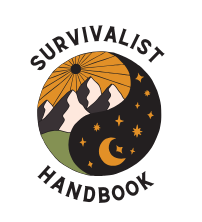In a world full of uncertainties, it’s essential to have basic survival skills under your belt. Whether you find yourself in the wilderness, facing urban disasters, or encountering life-threatening situations, having this knowledge can give you peace of mind and potentially save lives. These skills cater to a wide range of people, from those who are simply curious to beginners seeking introductory tips, to the adventurous souls preparing for extreme scenarios. With a focus on practicality, you’ll learn how to build shelters, find water and food, stay warm, and signal for help. By exploring these topics, you’ll not only become self-reliant and resilient but also be equipped to overcome challenges and emerge stronger in the face of adversity. So whether you’re planning an outdoor adventure or just want to be prepared for life’s unpredictable twists, delving into these essential survival skills is a must for every beginner.
Building Shelters
Introduction
When facing a survival situation, finding or building a shelter is a top priority. A well-constructed shelter provides protection from the elements, helps regulate body temperature, and offers a sense of security. Here are some essential tips on building shelters in various environments.
Finding Natural Shelters
If you find yourself in a wilderness setting, it’s important to look for natural shelters that can provide immediate cover. These may include caves, rock formations, fallen trees, or thick vegetation. Assess the safety and stability of these natural structures before seeking refuge in them.
Constructing a Basic Shelter
If natural shelters are not available, it’s crucial to know how to construct a basic shelter using the resources around you. This could involve using branches, leaves, and other materials to create a frame and cover it with natural insulation. Make sure your shelter is well-insulated and elevated from the ground to avoid moisture and cold.
Cold Weather Shelters
In cold weather conditions, it’s essential to prioritize insulation and protection from wind and snow. Building an insulated snow trench or a snow cave can effectively shield you from the elements. Additionally, utilizing materials like pine boughs and debris as insulation can significantly increase your shelter’s warmth.
Tips for Urban Disasters
In urban disaster situations, finding shelter may involve seeking refuge in buildings or utilizing any available structurally sound infrastructure. Be cautious of potential hazards and prioritize safety when choosing a shelter in a post-disaster urban environment.
Finding Water
Importance of Water
Water is a basic necessity for survival, and finding a clean and reliable source is crucial. A person can only survive a few days without water, so it’s essential to prioritize finding and purifying water in any survival scenario.
Identifying Water Sources
In the wilderness, look for natural water sources such as rivers, streams, and lakes. These sources are typically safe for consumption, but it’s important to purify them before drinking. In urban environments, water can be found in plumbing systems, water heaters, or rainwater collection systems.
Purifying Water
Regardless of the water source, it’s crucial to purify it before consumption. Boiling water for at least five minutes is the most effective method to kill pathogens. Additionally, using water filters, chemical disinfectants, or UV light purifiers can further ensure the water’s safety.
Water Conservation
In survival situations, water may be scarce. Practicing water conservation techniques such as collecting rainwater, using water efficiently, and avoiding wastage can help prolong your water supply.

Finding Food
Understanding Priorities
While finding food is essential for long-term survival, it is important to prioritize shelter, water, and signaling for help before expending extensive energy on acquiring food. However, understanding basic food sources can be beneficial in case the situation prolongs.
Foraging for Edible Plants
In both wilderness and urban environments, there are often edible plants that can provide nourishment. It is crucial to educate yourself about local plants to identify which are safe to consume. Be cautious and avoid consuming anything without proper knowledge.
Hunting and Fishing
In wilderness settings, hunting or fishing can provide a valuable food source. Learning basic hunting and fishing techniques, such as setting traps, fishing with improvised tools, or using natural baits, can greatly improve your chances of acquiring food.
Food Preservation and Storage
Once you have found or caught food, it’s important to preserve and store it properly. Utilize techniques such as drying, smoking, or canning to prevent spoilage and ensure food availability for as long as possible.
Staying Warm
Importance of Maintaining Body Temperature
Maintaining body temperature is crucial for survival, especially in cold environments. Hypothermia is a significant threat, and proper measures must be taken to stay warm and prevent heat loss.
Building Fires
Building a fire is not only a great tool for providing warmth but also offers the ability to cook food, purify water, and signal for help. Learning different fire-building techniques using available resources is a vital skill to have.
Insulating Your Shelter
Insulating your shelter is essential to retain body heat. Use materials such as leaves, pine needles, or debris to create a thick layer of insulation between you and the elements. It’s also important to elevate yourself from the cold ground to avoid heat loss.
Layering Clothing
Wearing layers of clothing is an effective way to trap body heat and regulate body temperature. Layering allows you to adjust your clothing according to weather conditions and your level of activity.

Signaling for Help
Importance of Signaling
When facing a life-threatening situation, signaling for help can significantly increase your chances of rescue. Notifying others of your presence and location is crucial in getting the attention of search and rescue teams or passing individuals.
Audible Signals
In wilderness or urban scenarios, creating audible signals can help attract attention. Use whistles, horns, bells, or any other available noisy objects to signal for help. Remember to use specific patterns to differentiate distress signals from background noise.
Visual Signals
Creating visible signals can aid in catching the attention of potential rescuers. Utilize bright-colored clothing, reflective materials, or any other visible markers to increase your visibility from a distance. Smoke signals or signal fires can also be effective in attracting attention.
Emergency Communication Devices
Carrying emergency communication devices, such as whistles, signal mirrors, flares, or even a fully charged mobile phone, can greatly enhance your ability to signal for help. Make sure to familiarize yourself with their operation and keep them easily accessible.
Navigating the Wilderness
Understanding Navigation Basics
When exploring the wilderness, having basic navigational skills can help you find your way and avoid getting lost. Familiarize yourself with topographic maps, compasses, and landmarks to navigate effectively.
Using Natural Navigation
Learning to utilize natural methods for navigation can be helpful when maps or compasses are unavailable. These methods involve observing natural signs such as the position of the sun, the growth pattern of moss on trees, or the direction of rivers.
Creating and Following Trails
Creating and following clearly marked trails can also aid in navigation. Use natural or improvised markers to indicate your path, making it easier to find your way back or for potential rescuers to track your movements.
Night Navigation
Navigating in the dark can be challenging. Carry a reliable and bright light source to illuminate your surroundings and help you navigate. Familiarize yourself with techniques such as using the stars or moon for orientation.
Facing Urban Disasters
Preparing for Urban Disasters
Urban disasters can range from natural disasters like earthquakes and hurricanes to man-made incidents such as terrorist attacks or civil unrest. Being prepared for such scenarios can significantly increase your chances of survival.
Emergency Kits
Assembling an emergency kit with essential supplies like food, water, first aid supplies, flashlights, and communication devices is crucial. Keep the kit easily accessible and regularly update it with fresh supplies.
Evacuation Plans
Developing evacuation plans and familiarizing yourself with the evacuation routes in your area is important. Identify safe meeting points for your family or loved ones, and establish a communication plan to remain connected during emergencies.
Securing Your Home
In urban disaster situations, securing your home is essential. Reinforce doors and windows, store emergency supplies, and have a plan for sheltering in place if evacuation is not possible or advised.
Community Preparedness
Working with your community to establish emergency response plans and support networks can enhance overall preparedness. Encourage your neighbors to prepare, share knowledge and resources, and foster a sense of community resilience.
Dealing with Life-Threatening Scenarios
Mental and Emotional Preparedness
Dealing with life-threatening scenarios can be highly stressful and emotionally challenging. Prioritizing mental and emotional preparedness ensures that you can make rational decisions and stay calm during critical moments.
Stay Positive and Focused
Maintaining a positive mindset and staying focused on survival goals is crucial. Reduce panic and anxiety by reminding yourself of your skills, resources, and the potential for rescue. Concentrate on the immediate tasks at hand.
Adaptability and Problem-Solving
Life-threatening scenarios often require quick thinking and adaptation to changing circumstances. Developing problem-solving skills and being open to alternative solutions can help you navigate unexpected challenges.
First Aid and Medical Training
Having knowledge of basic first aid and medical training is invaluable in life-threatening situations. Learn life-saving techniques, such as CPR, treating wounds, and managing common medical emergencies, to provide immediate care to yourself or others if necessary.
Preparation for Outdoor Adventures
Researching Your Destination
When planning outdoor adventures, thorough research about your destination is essential. Familiarize yourself with the terrain, weather patterns, potential hazards, and necessary permits or regulations to ensure a safe and enjoyable experience.
Physical Fitness Training
Outdoor adventures can be physically demanding, requiring stamina and endurance. Engage in physical fitness training specific to the activities you plan to undertake to reduce the risk of injuries and increase your overall performance.
Packing Essential Gear
Prepare a well-stocked backpack with essential gear such as navigation tools, first aid kits, extra clothing, food, water, and emergency supplies. Consider the specific needs of your adventure, be it camping, hiking, or rock climbing, and pack accordingly.
Leave No Trace Principles
Respecting and preserving the natural environment is crucial for outdoor enthusiasts. Familiarize yourself with the Leave No Trace principles, which provide guidelines on minimizing your impact on the environment and leaving it as you found it.
Equipping for Unpredictable Twists
Being Adaptive and Resourceful
No matter how prepared you are, situations can change rapidly, requiring adaptability and resourcefulness. Learn to think on your feet, improvise tools and shelter, and use available resources creatively to overcome unexpected challenges.
Survival Kits
Carrying a compact survival kit with essential tools, such as a multi-tool, fire-starting equipment, cordage, and emergency supplies, can be a lifesaver. Customize your kit based on your specific needs and the environment you are venturing into.
Continual Learning and Practice
Survival skills are perishable, and continuous learning and practice are essential. Attend survival training courses, practice various skills regularly, and stay updated with the latest techniques and knowledge to enhance your preparedness.
Building a Support Network
Building a supportive network of like-minded individuals who share your interest in survival skills can provide valuable resources, knowledge, and a sense of community. Collaborate, learn from each other, and support one another’s preparedness efforts.
In conclusion, mastering essential survival skills empowers individuals to become self-reliant, resilient, and prepared for unexpected situations. Whether you are venturing into the wilderness or facing urban disasters, learning skills such as building shelters, finding water and food, staying warm, signaling for help, navigating, and dealing with life-threatening scenarios can potentially save lives. By preparing for outdoor adventures and equipping yourself for unpredictable twists, you can approach any challenging situation with confidence and emerge stronger than before. Remember, practice, education, and a friendly, adventurous spirit are the keys to successful survival.

